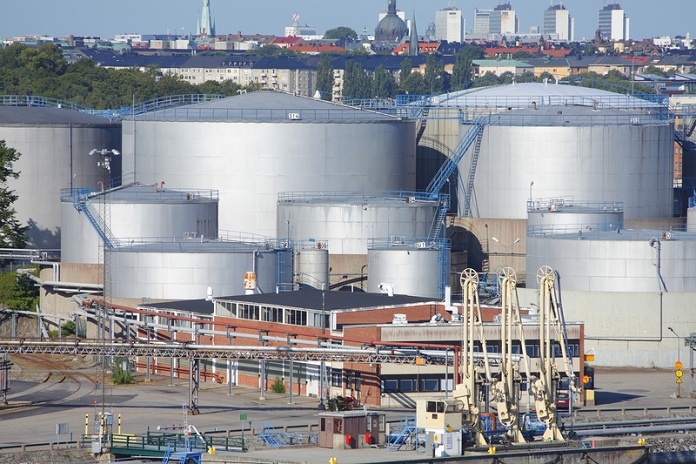One has to look no further than energy and oil to see the chilling effect of interest rate hikes on the stock market.
With CNN reporting today (July 14) that financial experts now expect the Federal Reserve to raise the interest rate a full percentage point at its next meeting, stock prices in both categories are declining rapidly.
By the way, if the Fed does, as expected, raise the interest rate one point, that would be the first total percentage point increase in the modern era. It would also follow a three-quarter percentage point hike that the Fed made in June. That increase was the largest since 1994.
Just last month, Fed Governor Christopher Waller said about a possible one percentage point rate hike: “I think the markets would have a heart attack.”
Fear is Driving Declining Energy and Oil Stock Prices
Investors are clearly concerned that rate hikes could trigger a significant economic slowdown.
After a large jump in inflation in May, the rate increased even more in June.
Here’s what you need to know: the inflation rate was up 8.6% in May, which threw the stock market into turmoil and ultimately prompted the Federal Reserve to raise interest rates more aggressively.
Now CNBC is reporting that inflation based on the Consumer Price Index (CPI) increased by 9.1% in June, which was higher than expected.
At the same time, wholesale inflation, which is determined by the Producer Price Index (PPI), surged 11.3% in June, according to Fox Business. That level of increase also surprised economists who expected a 10.7% jump.
Other inflation news for June includes a 2.4% increase in the prices of goods, which was the sixth consecutive month with a rise.
One of the big drivers of the price increases is a 10% increase in final demand energy prices, which includes a whopping 18% increase in gasoline prices.
Energy & Oil Stocks Could Drop Even More in a Recession
It should probably come as no surprise that the US Department of Labor is reporting that we are experiencing the fastest pace of inflation since 1981.
It should also come as no surprise that many are starting to wonder if the Fed can control inflation in this manner without triggering a recession.
If a recession occurs, you can expect job growth to stagnate and the unemployment rate to rise … all while inflation remains high.
Typically, recessions last six to 12 months, though the Great Recession that started after 1948 lasted 18 months.
There are different recession recovery types, with three of the most common being a V-shaped recovery, a U-shaped recovery, and a K-shaped recovery.
A V-shaped recovery features a sharp decline to the bottom and then a rapid rise. A U-shaped recovery features more time spent at the bottom, and a K-shaped recovery means some parts of the economy recover faster than others.
Unfortunately, there is also a fourth common type of recovery – a W-shaped recovery. In that scenario, an economy goes into recession, recovers, and then goes right back into another recession.
No Wonder Energy & Oil Stocks are in Flux
As the economic news worsens, investors quickly lose market sectors that offer refuge from the storm.
One of those safe-haven sectors has been energy, which saw gains as economies reopened after the pandemic and with the Russia–Ukraine War depleting global energy supplies.
But those gains have given way to losses now. The energy market was down -2.3% in the week ending July 9, and the S&P 500 Energy Sector Index (INDEXSP:SP500-10) was down 25% as of July 14 from its price on June 1.
The truth is in a current list of the 15 biggest decliners in the S&P 500, nine of them are oil and gas stocks:
- Valero Energy Corporation (NYSE:VLO): -5%
- ConocoPhillips (NYSE:COP): -5.3%
- Hess Corp. (NYSE:HES): -5.3%
- Devon Energy Corp. (NYSE:DVN): -5.4%
- Diamondback Energy Inc. (NASDAQ:FANG): -5.8%
- Marathon Oil Corporation (NYSE:MRO): -5.9%
- EOG Resources Inc. (NYSE:EOG): -6.2%
- APA Corp. (NASDAQ:APA): -6.7%
- Halliburton Company (NYSE:HAL): -6.8%
Featured Image: DepositPhotos © dreamstimesmall

















